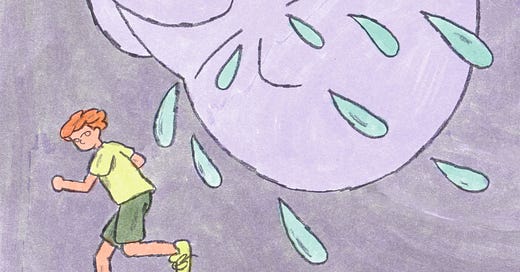Hey all,
Welcome to Human Nature, the illustrated psychology newsletter. If you’re enjoying this newsletter, please help it reach more people by liking, commenting, sharing and subscribing!
This week marks the beginning of our new series on self-regulation. As I’ve recently been trying to get into exercising and eating healthier, it’s a topic that has been top of mind. Self-regulation is the act off controlling your thoughts, feelings and behaviours in order to reach your goals. But it’s something we often fail at. In the next few articles, we will go through how self-regulation works, why we fail to do it and how to get better.
Affective forecasting
What it is: Affective forecasting is the act of predicting future emotions. It refers to our assessment of how future events will affect us emotionally. It is the first step in taking an action, therefore the first challenge we face in self-regulating.
Why it’s important: We make decisions based on what we think will make us happiest. Therefore affective forecasting impacts every area of of lives, from professional choices to our personal relationships.
Why we fail at it: We are terrible at affective forecasting. This is due to we call the impact bias: our tendency to over- or underestimate the intensity and duration of the emotional consequences of future events. For example, we might book an expensive holiday thinking it will eliminate all our stress permanently. Conversely, we might avoid a simple phone call because we think it will be utterly unbearable.
Part of the reason we fall victim to the impact bias is because of something psychologists call immune neglect. This refers to how we overlook our natural ability to cope with negative feelings, in other words, all the things that our psychological immune system does for us.
Thank you for reading and see you next time.
Sources:
Immune neglect in affective forecasting. (Hoerger et al., 2009).





